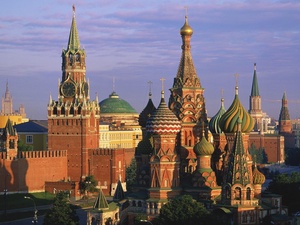Days after the Kremlin nodded toward easing off on persecuting environmental non-profits, a court in Chelyabinsk liquidated the “For Nature” anti-nuclear and ecology group, which had been declared a “foreign agent,” Novaya Gazeta newspaper reported.
Days after the Kremlin nodded toward easing off on persecuting environmental non-profits, a court in Chelyabinsk liquidated the “For Nature” anti-nuclear and ecology group, which had been declared a “foreign agent,” Novaya Gazeta newspaper reported.
The decision casts doubt on whether new overtures by the governor of Vladimir Putin will produce amendments to the foreign agent NGO law that has muzzled many of Russia’s civil society organizations by implying they are spies.
Within the last year, efforts to reform the law’s unreasonably broad interpretation of “political activity” which has landed over 100 non-profits on a list of “foreign agents,” have served only to entangle more NGOs in legal proceedings.
On Friday, Putin signaled to members of his government they shoulddevelop possible amendments to the law with an eye to excluding environmental groups from inclusion on the foreign agent list.
The Chelyabinsk court ruled in favor of the Ministry of Justice, which brought suit against For Nature to close it. The group immediately said it would appeal, the paper said.
 The office of a Russian NGO defaces with the words "foreign agent."
Credit: Memorial
The office of a Russian NGO defaces with the words "foreign agent."
Credit: Memorial
The original 2012 NGO law stipulated that non-profits in Russia receiving foreign financing and engaged in poorly defined “political activity” must register with the Justice Ministry as “foreign agents. This order was universally boycotted.
In June 2014, President Vladimir Putin granted the Justice Ministry to name foreign agents on its own. The number of Russian non-profits has decreased by over a third since the law took effect.
The Ministry of Justice went after the For Nature for a host of small, easily corrected violations – a tactic the Ministry has favored since early 2016, when the major rights organizations Agora and Golos, the election monitoring organization, were sued out of existence after landing on the foreign agent list.
Among the accusations brought by the Justice Ministry’s lawsuit against For Nature was that it failed to hand in accounting documents on time, that it violated its charter and that it incorrectly listed its address.
Like For Nature, Golos – which means both “voice” and “vote” in Russian – had long been on the Justice Ministry’s foreign agent list. Golos was targeted by the Kremlin in 2013, after Putin’s reelection, because it had revealed widespread voter fraud in Russia’s December 2011 Duma elections.
The group’s revelations sparked enormous and devoted deep-winter street demonstrations against Putin – who was then running for his third presidential term – that spread from Moscow to other major Russian cities.
Golos was speared after landing on the foreign agent list for failing to provide various documents for review to the Justice Ministry on time and for belatedly registering a change of address.
Agora was sunk in a lawsuit brought by the Ministry for, among a few other violations, failing to identify its publicly disclosed financial records as being compiled by a foreign agent.
On Monday, For Nature’s attorney and one of its members, Andrei Lepekhin, told Novaya Gazeta, that “we categorically disagree with the court’s decision and we will appeal it.”
This month, Mikhail Fedotov, head of the Presidential Council on Human Rights and Civil Society, asked Putin to oppose including environmental organizations from inclusion on the foreign agent list by introducing amendments to the law.
 Putin (far left), Russia’s Human Rights Ombudsman Vladimir Lukin (center) and Chairman of the Council for Civil Society and Human Rights Mikhail Fedotov at a 2012 meeting. (Photo: kremlin.ru)
Putin (far left), Russia’s Human Rights Ombudsman Vladimir Lukin (center) and Chairman of the Council for Civil Society and Human Rights Mikhail Fedotov at a 2012 meeting. (Photo: kremlin.ru)
Last week, Fedotov met with Putin and his deputy for domestic affairs, former Rosatom head Sergei Kiriyenko. Fedotov, who has led unsuccessful campaigns scrap the NGO law and interpretation of “political activity,” has long asserted that Russian legislation protects environmental organizations from being called foreign agents altogether.
Fedotov’s council has calculated that a third of the NGOs on the Justice Ministry’s list of foreign agents are nonetheless environmental groups.
On Friday, he said such a high number of the foreign agents were environmental groups because: “It’s easier and cheaper to put environmental NGOs on the roster of foreign agents than it is to solve problems of environmental conservation.”
One of those environmental groups was Bellona Murmansk. The group was included on the foreign agent list in March 2014 after it published a report on industrial pollution in Northwest Russia.
The group liquidated itself in 2015, before the Justice Ministry’s drive to sue these organizations over trivial violations began.






